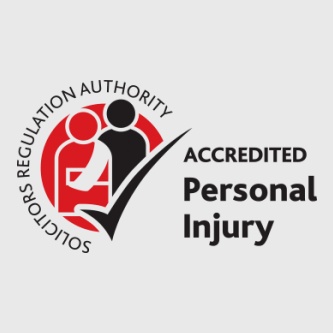‘Andrew’ – Knocked off his bicycle by a car
Settlement achieved: Significant five figure sum
Case handler: Matthew Dixon (Partner & Senior Solicitor) assisted by Peter Eckersley (Senior Solicitor) and Jennifer Halliday (Litigation Executive)
Key elements of our client’s case
In this case, our client was a cyclist involved in a road traffic accident where the Defendant made a right turn across our client’s path, causing a collision. Our client was thrown from his bicycle and sustained serious injuries, including:
- fractured patella (knee cap);
- fractured hand/wrist;
- significant wound to his knee which resulted in Deep vein thrombosis;
- psychiatric damage.
Where our specialist serious injury experience really added value to our client’s situation
We sent a Letter of Claim to the Defendant’s insurance company (Defendant) and they were invited to participate in addressing our client’s immediate needs in relation to rehabilitation.
The Defendant responded to the Letter of Claim confirming that they admitted liability for the accident and also agreed to the instruction of a specialist rehabilitation case management company on a joint basis and confirmed that they would fund the Immediate Needs Assessment (INA).
The INA report was later received and the Defendant agreed to fund the recommended treatment.
We then instructed a Consultant Orthopaedic Surgeon to examine our client and prepare an expert’s report for the purposes of the claim. The expert’s report confirmed that our client suffered a fracture of his patella and right wrist as well as multiple bruises, abrasions and soft tissue injuries with sprains to the right shoulder, left knee and left hand. Due to the injuries sustained, our client suffered from pain, immobility and inconvenience and deep vein thrombosis that led to a pulmonary embolism.
The report confirmed that our client had made progress but had not fully recovered. The expert recommended that our client continue with physiotherapy treatment and that a report be obtained from a Clinical Psychologist and a Consultant Physician. The expert also recommended an MRI scan of our client’s right patella.
We obtained our client’s updated medical records and we instructed a Consultant Psychologist to examine our client and report.
The Consultant Psychologist confirmed that our client suffered from anxiety when driving his car and riding his road bike, suffered with intrusive images of flying through the air and had disturbed sleep. The expert recommended 12 sessions of psychological therapy. We then disclosed the report to the Defendant and we requested that they fund the recommended treatment.
We then instructed and received the report from a General Surgeon who confirmed that our client was admitted to hospital six weeks post-accident with shortness of breath and chest pain. Investigations revealed a large pulmonary embolism which was treated with anticoagulation medication and he was discharged a few days later. The expert confirmed that the venous thrombosis and pulmonary embolism was the result of immobilisation of his right leg following trauma and appeared to be an isolated event of provoked deep vein thrombosis.
The Defendant agreed to release an interim payment and the psychological therapy was arranged.
Our client’s rehabilitation case manager confirmed that he was coming to the end to his treatment and it was agreed that he should be discharged from case management. The case manager provided a discharge report which confirmed that he had achieved the goals which were set which included returning to work, pre action sports and reduced pain levels to his right knee.
A barrister (counsel) was instructed to advise in conference on the expert evidence and the requirements for the future progress of the case. Following the conference, updated treatment records were obtained and work was undertaken to quantify our client’s losses.
Prior to the accident, our client ran a successful business and due to his injuries he was unable to work which had a dramatic effect on his productivity and resulted in loss of revenue to the business which impacted on his personal income.
Our client continued to suffer with his injuries and therefore an MRI scan was arranged as recommended by the Consultant Orthopaedic Surgeon and shared with him with a request that he prepare an updated report.
Due to the ongoing difficulties with our client’s knee, we arranged an appointment with an Orthopaedic Surgeon on a private paying basis. The Orthopaedic Surgeon reviewed the MRI scan and confirmed that it showed a fragment of bone which was likely to be the source of our client’s pain, together with a meniscal tear.
The expert recommended our client undergo keyhole surgery, to remove the fragment, check there was nothing stuck to the lining of the joint and tidy up the meniscal tear. Our client was keen to undergo the surgery in anticipation that it would improve his symptoms. A copy of the quote for the surgery was disclosed to the Defendant and a further interim payment was requested.
The Defendant confirmed that they were not in a position to release a further interim for treatment as they remained without Orthopaedic evidence and, whilst the privately instructed Orthopaedic Surgeon may have made such recommendations as a treating therapist, there was nothing to support that any symptoms were accident related. The Defendant queried why the operation could not be carried out under the NHS.
Reaching settlement
Due to the Defendant’s refusal to provide a further interim payment, legal proceedings were issued.
Following the issue of proceedings, the Defendant confirmed that they were prepared to release a further interim payment which would cover the cost of the surgery.
The Defendant then put forward an offer for a five figure sum. A conference was arranged with Counsel to consider the offer. Following the conference, our client confirmed as treatment was ongoing and the medical prognosis remained guarded, the Defendant’s offer was not acceptable.
Our client’s knee surgery was delayed due to the Covid-19 pandemic. Once the surgery took place and sufficient recovery time was allowed, we instructed the Consultant Orthopaedic Surgeon to re-examine our client to prepare an updated expert report.
Following a procedural Court hearing, directions were set down and a two day trial listed to assess our client’s personal injury damages.
The Defendant’s and Claimant’s orthopaedic experts were asked to prepare a joint statement setting out the areas where they agreed and disagreed in relation to the claimant’s injuries.
The matter proceeded in accordance with the court directions, a schedule of loss was finalised and a counter schedule received from the Defendant. Trial preparations began, however, following negotiations, a settlement was agreed between the parties, with our client accepting a significant five figure sum.
If you or someone you know would like to speak to our serious injury specialist about a cycling accident, please contact us today.









